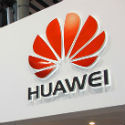
Also in today's EMEA regional roundup: ETNO wants to see investment encouraged; Q4 fun at KPN, Telia and Telenor; broadband wars in Bristol.
If you thought yesterday's announcement regarding Huawei's involvement in the UK's 5G network rollouts was the end of the matter, think again. Following the news that the UK government would ignore US advice and allow Huawei kit into its comms infrastructure, albeit in a limited way, US Secretary of State Mike Pompeo has jumped straight on a plane to, in effect, ask British officials involved in the decision: "Are you sure?" As the BBC reports, the US State Department described Pompeo's visit as a chance to "reaffirm the special relationship following the UK's departure from the EU and discuss ways to broaden and deepen trade ties," but that's not fooling anyone. And it's not as if UK Prime Minister Boris Johnson doesn't face enough opposition to yesterday's decision from those closer to home: According to the Guardian, he faces a potential rebellion from members of his own political party, with one prominent backbencher, Iain Duncan Smith, demanding to see "modifications and changes made." (See Huawei's brave face is unconvincing in the wake of a UK clampdown and Tough UK limits on Huawei's role in 5G threaten telco plans.)
ETNO has a new State of Digital Communications report out and, not surprisingly, the organization uses it to call for "policy action" to boost investment in European networks. According to the report, investment per capita in telecom markets in 2019 stood at €89 (US$98) per person, as opposed to €213 ($234) in the US or €191 ($210) in Japan. The report also identifies areas in which telcos have an opportunity to offer a "European alternative" to consumers, including artificial intelligence, cloud and data-based services.
Fourth-quarter revenues at Dutch incumbent operator KPN fell 3% year-on-year to €1.39 billion ($1.52 billion), while adjusted EBITDA (earnings before interest, tax, depreciation and amortization) was down 1.6% to €561 million ($617 million). Lower revenues from "legacy" services and "continued pressure in mobile" were cited as reasons for the decline.
Also heading south in the fourth quarter, revenues-wise, is Telia, which saw like-for-like sales decline 2.3% year-on-year to 22.83 billion Swedish kronor ($2.37 billion). Going forward, Christian Luiga, Telia's acting president and CEO, is putting his faith in data analytics to help create "stronger and more relevant converged offers to our existing customers."
Things look brighter at Telia's Nordic rival Telenor, where fourth-quarter revenues increased by 2.9% (on an organic basis) year-on-year, to 31.80 billion Norwegian kroner ($3.48 billion). EBITDA grew by 5%, to NOK11.88 billion ($1.30 billion). Operating expenses decreased by 6% compared to year-ago period.
Broadband wars have broken out in the English city of Bristol, with Virgin Media accusing rival BT of delivering "broadband bunkum" on its advertising billboards. To counter what it views as the "dubious, unsubstantiated" claims featured on BT's ads, which advise Bristolians "not to settle" for Virgin's wares, Virgin is doing its best to disrupt the city's traffic flow by parking its own mobile billboards, offering a contrary viewpoint, in front of the BT posters. What larks! Figure 1:
 You can't park there mate: Virgin goes to war over BT's 'broadband bunkum'
You can't park there mate: Virgin goes to war over BT's 'broadband bunkum'UK "challenger" broadband provider TalkTalk has hired a former BBC journalist, Lucy Thomas, as its new director of corporate affairs. Thomas spent four years at the BBC's Brussels bureau covering the arcane goings-on at the European Union institutions, so defending TalkTalk's oft-criticized customer service should come as light relief.
— Paul Rainford, Assistant Editor, Europe, Light Reading
About the Author(s)
You May Also Like












